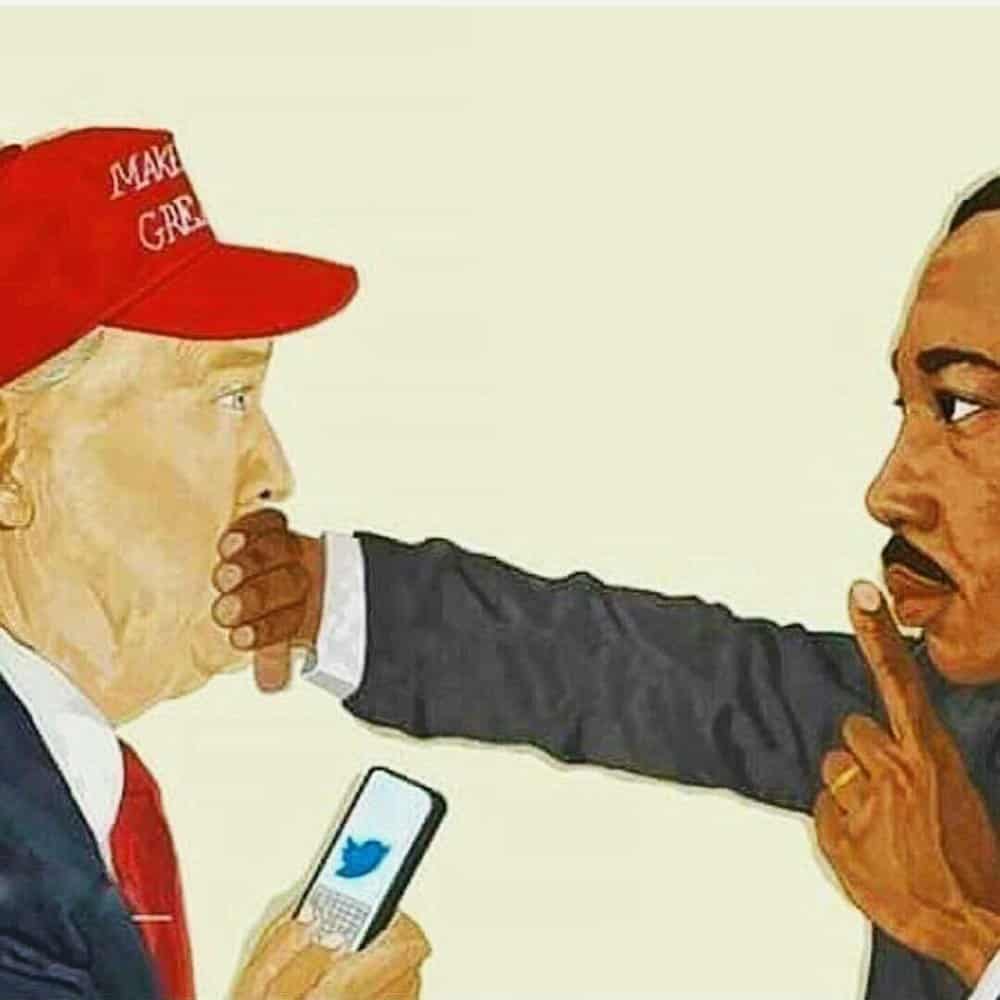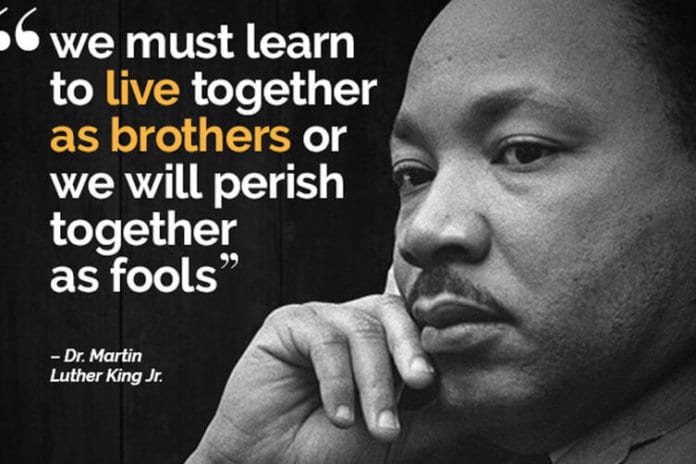Blog
Richard Pierce Havens (January 21, 1941 – April 22, 2013) was an American singer-songwriter and guitarist. His music encompassed elements of folk, soul, and rhythm and blues. He had an intense and rhythmic guitar style (often in open tunings), and played soulful covers of pop and folksongs. He was the opening act at Woodstock.
Born in Bedford–Stuyvesant, Brooklyn, Havens was the oldest of nine children. He was of Native American (Blackfoot) descent on his father’s side and of the British West Indies on his mother’s. His grandfather was Blackfoot of the Montana/South Dakota area. Havens’s grandfather and great-uncle joined Buffalo Bill’s Wild West Show, got off in New York City, and ended up on the Shinnecock Reservation in Long Island. Havens’s grandfather got married, then moved to Brooklyn.
As a youth in Bedford-Stuyvesant, Havens began organizing his neighborhood friends into street corner doo-wop groups and, at age 16, was performing with the McCrea Gospel Singers. At age 20, Havens left Brooklyn, seeking artistic stimulation in Greenwich Village. “I saw the Village as a place to escape to, in order to express yourself,” he recalled. “I had first gone there during the beatnik days of the 1950s to perform poetry, then I drew portraits for two years and stayed up all night listening to folk music in the clubs. It took a while before I thought of picking up a guitar.” Havens’s solo performances quickly spread beyond the Village folk circles. After cutting two records for Douglas Records, he signed on with Bob Dylan‘s manager, Albert Grossman, and landed a record deal with the Verve Folkways (later Verve Forecast) label. Verve released Mixed Bag in late 1966, which featured tracks such as “Handsome Johnny” (co-written by Havens and actor Louis Gossett Jr.), “Follow”, and a cover of Bob Dylan‘s “Just Like a Woman“. Havens released his first single, “No Opportunity Necessary”, in 1967.
more...Fird Eaglin Jr. (January 21, 1936 or 1937 – February 18, 2009), known as Snooks Eaglin, was an American guitarist and singer based in New Orleans. In his early years he was sometimes credited under other names, including Blind Snooks Eaglin, “Lil” Snook, Ford Eaglin, Blind Guitar Ferd.
His vocal style was reminiscent of that of Ray Charles; in the 1950s, when he was in his late teens, he sometimes billed himself as “Little Ray Charles”. He played a wide range of styles of music within the same concert, album, or even song: blues, rock and roll, jazz, country, and Latin. In his early years, he also played acoustic blues.
His ability to play a wide range of songs and make them his own earned him the nickname “The Human Jukebox.” Eaglin claimed in interviews that his musical repertoire included some 2,500 songs.
At live shows, he usually did not prepare set lists and was unpredictable, even to his bandmates. He played songs that came to him on stage, and he also took requests from the audience.
Eaglin lost his sight not long after his first birthday, having been stricken with glaucoma, and spent several years in the hospital with other ailments. Around the age of five he received a guitar from his father and taught himself to play by listening to and playing along with the radio. A mischievous youngster, he was given the nickname “Snooks” after a radio character named Baby Snooks.
In 1947, at the age of 11, Eaglin entered a talent contest organized by the radio station WNOE and won it with his performance of “Twelfth Street Rag.” Three years later, he dropped out of a school for the blind to become a professional musician. In 1952, he joined the Flamingoes, a local seven-piece band started by Allen Toussaint. The Flamingoes did not have a bass player, and according to Eaglin, he played both the guitar and the bass parts simultaneously on his guitar. He stayed with the Flamingoes for several years, until the group disbanded in the mid-1950s.
As a solo artist, his recording and touring were inconsistent, and for a man with a career of about 50 years, his discography is rather slim. His first recording was in 1953, playing guitar at a recording session for James “Sugar Boy” Crawford.
The first recordings under his own name were made by Harry Oster, a folklorist from Louisiana State University, who found Eaglin playing in the streets of New Orleans and recorded him in seven sessions between 1958 and 1960. For these recordings, Eaglin played in a folk blues style, accompanying himself on an acoustic guitar, without a band. These recordings were later released by several labels, including Folkways, Folk-Lyric, and Prestige/Bluesville.
more...María Dolores Flores Ruiz (21 January 1923 – 16 May 1995) was a Spanish singer, actress, dancer and businesswoman. Referred to as “La Faraona” since the 1950s, Lola is known for her overwhelming personality onstage. As a bailaora, she enraged several generations of continents, although she distanced herself from flamenco canons. Lola performed more than 35 films, pigeonholed, in many of them, in Andalusian folklore, although she also interpreted rumbas and rancheras.
Born and raised in Jerez de la Frontera, Lola moved to Seville in 1928.
more...M90 is a bright, beautiful spiral galaxy situated in the Virgo cluster of galaxies. Located in the constellation Virgo, this galaxy is approximately 59 million light-years away from Earth and has a magnitude of 9.5. M90 is believed to be breaking away from the rest of the galaxies in the Virgo cluster and is one of the few galaxies traveling toward our Milky Way galaxy, not away.
Charles Messier found M90 in 1781 while looking at other galaxies in the Virgo cluster. M90 contains approximately a trillion stars and a thousand globular clusters. With the exception of the inner disk region, the galaxy’s arms contain very little star formation. Interactions with neighboring galaxies likely stripped away the gas and material that M90 needs to have active star formation in its outer regions. In the future, M90 is expected to evolve into a lenticular galaxy, which is a galaxy that has qualities of both a spiral and an elliptical galaxy.
This Hubble observation was taken in infrared, ultraviolet and visible light with the telescope’s Wide Field and Planetary Camera 2. Less than half of the galaxy is visible in this image. Astronomers used these Hubble observations to help study the properties of galactic bulges and the cores of nearby galaxies.

José James (born January 20, 1978) is an American vocalist best known for performing and blending modern jazz and hip-hop. James performs all over the world both as a bandleader and with other groups.
José James attended The New School for Jazz and Contemporary Music. In 2008, he debuted with his first album, The Dreamer, on the Brownswood label. Blackmagic followed in 2010. 2010’s For All We Know came out on the Impulse! label. For All We Know became the winner of both the Edison Award and L’Académie du Jazz Grand Prix for best Vocal Jazz Album of 2010.
more...Jeff “Tain” Watts (born January 20, 1960) is a jazz drummer who has performed with Wynton Marsalis, Branford Marsalis, Betty Carter, Michael Brecker, Alice Coltrane, Ravi Coltrane, and others.
Watts got the nickname “Tain” from Kenny Kirkland when they were on tour in Florida and drove past a Chieftain gas station. He was given a Guggenheim fellowship in music composition in 2017.
https://www.youtube.com/watch?v=5p3V5aEtDqQ
more...Wilbur James Cobb (born January 20, 1929) is an American jazz drummer. Some of Cobb’s most famous work is on Miles Davis‘s Kind of Blue (1959). Cobb is the last surviving player from the session. He also played on other Davis albums, including Sketches of Spain, Someday My Prince Will Come, Miles Davis at Carnegie Hall, In Person Friday and Saturday Nights at the Blackhawk, Complete, and briefly on Porgy and Bess and Sorcerer.
He has worked with Dinah Washington, Pearl Bailey, Clark Terry, Cannonball Adderley, Dizzy Gillespie, John Coltrane, Sarah Vaughan, Billie Holiday, Wynton Kelly, Stan Getz, Wes Montgomery, Art Pepper, Gil Evans, Miles Davis, Paul Chambers, Kenny Burrell, J. J. Johnson, Sonny Stitt, Nat Adderley, Benny Golson, Hank Jones, Ron Carter, George Coleman, Fathead Newman, Geri Allen, Earl Bostic, Leo Parker, Charlie Rouse, Ernie Royal, Philly Joe Jones, Bobby Timmons, Walter Booker, Jerome Richardson, Keter Betts, Jimmy Cleveland, Sam Jones, Red Garland, Joe Henderson, Eddie Gómez, Bill Evans, Jeremy Steig, Richard Wyands, Peter Bernstein, Richie Cole, Nancy Wilson, Ricky Ford.
more...Huddie William Ledbetter (/ˈhjuːdi/; January 20, 1888 – December 6, 1949), better known by the stage name Lead Belly, was an American folkand blues singer, musician and songwriter notable for his strong vocals, virtuosity on the twelve-string guitar, and the folk standards he introduced, including his renditions of “Goodnight, Irene“, “Midnight Special“, “Cotton Fields“, and “Boll Weevil“.
Lead Belly usually played a twelve-string guitar, but he also played the piano, mandolin, harmonica, violin, and windjammer. In some of his recordings, he sang while clapping his hands or stomping his foot.
Lead Belly’s songs covered a wide range of genres and topics including gospel music; blues about women, liquor, prison life, and racism; and folk songs about cowboys, prison, work, sailors, cattle herding, and dancing. He also wrote songs about people in the news, such as Franklin D. Roosevelt, Adolf Hitler, Jean Harlow, Jack Johnson, the Scottsboro Boys and Howard Hughes. Lead Belly was posthumously inducted into the Rock and Roll Hall of Fame in 1988 and the Louisiana Music Hall of Fame in 2008.
Though many releases credit him as “Leadbelly”, he himself wrote it as “Lead Belly”, which is also the spelling on his tombstone and the spelling used by the Lead Belly Foundation.
Lead Belly pronounced his first name /ˈhjuːdi/ (HYOO-dee, as if spelled “Hudie”). He can be heard pronouncing his name this way on one of his recordings of “Boll Weevil”.The younger of two children, Lead Belly was born Huddie William Ledbetter to Sallie Brown and Wesley Ledbetter on a plantation near Mooringsport, Louisiana, on January 20, 1888. His parents had cohabited for several years, but they legally married on February 26, 1888. When Huddie was five years old, the family settled in Bowie County, Texas. The 1900 United States Census lists “Hudy Ledbetter” as 12 years old, born January 1888, and the 1910 and 1930 censuses also give his age as corresponding to a birth in 1888. The 1940 census lists his age as 51, with information supplied by wife Martha. However, in April 1942, when Ledbetter filled out his World War II draft registration card, he gave his birth date as January 23, 1889, and his birthplace as Freeport, Louisiana(“Shreveport”). His grave marker bears the date given on his draft registration.
more...https://www.youtube.com/watch?v=lw2f235y7k0
more...Mardi Gras 2020 only 36 days until Fat Tuesday. Celebrate with the
BEAU KOO JACKS
at Neumanns Bar in North St Paul 7-11pm
Fat Tuesday February 25th 2020
with Guest artists
Torrion Amie and Jesse Mueller with Jamie Carter, Todd Matheson, Paul Strickland, Larry McCabe, Art Haynes and mick Bamboula laBriola.
more...

X-rays from the radio galaxy 3C31 (blue), located 240 million light years from Earth, allow astronomers to probe the density, temperature, and pressure of this galaxy, long known to be a powerful emitter of radio waves. The Chandra data also reveal a jet blasting away from one side of the central galaxy, which also is known as NGC 383. Here, the Chandra X-ray image has been combined with Hubble’s visible light data (yellow).

Robert Allen Palmer (19 January 1949 – 26 September 2003) was an English singer-songwriter, musician, and record producer. He was known for his distinctive, soulful voice, sartorial elegance and for combining soul, jazz, rock, pop, reggae, and blues.
Palmer’s involvement in the music industry began in the 1960s, covered four decades and included a spell with the band Vinegar Joe. He found success both in his solo career and with the Power Station, and had Top 10 songs in both the United Kingdom and the United States in the 1980s. Three of his hit singles, “I Didn’t Mean to Turn You On,” “Addicted to Love,” and “Simply Irresistible”, were accompanied with stylish music videos directed by British fashion photographer Terence Donovan. Palmer received a number of awards throughout his career, including two Grammy Awards for Best Male Rock Vocal Performance, an MTV Video Music Award, and two Brit Award nominations for Best British Male Solo Artist.
Palmer died aged 54 following a heart attack on 26 September 2003.
Palmer’s father was a British naval intelligence officer stationed in Malta. In 1949, Palmer moved with his family from Batley, where he was born, to Scarborough. Influenced as a child by blues, soul and jazz music on American Forces Radio, Robert Palmer joined his first band, The Mandrakes, at the age of 15 whilst still at Scarborough High School for Boys. His first major break came with the departure of singer Jess Roden from the band The Alan Bown Set in 1969, after which Palmer was invited to London to sing on their single “Gypsy Girl”.
more...Janis Lyn Joplin (January 19, 1943 – October 4, 1970) was an American singer-songwriter who sang rock, soul and blues music. One of the most successful and widely known rock stars of her era, she was known for her powerful mezzo-soprano vocals and “electric” stage presence.
In 1967, Joplin rose to fame following an appearance at Monterey Pop Festival, where she was the lead singer of the then little-known San Francisco psychedelic rock band Big Brother and the Holding Company. After releasing two albums with the band, she left Big Brother to continue as a solo artist with her own backing groups, first the Kozmic Blues Band and then the Full Tilt Boogie Band. She appeared at the Woodstock festival and the Festival Express train tour. Five singles by Joplin reached the Billboard Hot 100, including a cover of the Kris Kristofferson song “Me and Bobby McGee“, which reached number 1 in March 1971. Her most popular songs include her cover versions of “Piece of My Heart“, “Cry Baby“, “Down on Me“, “Ball and Chain“, and “Summertime“; and her original song “Mercedes Benz“, her final recording.
Joplin died of a heroin overdose in 1970 at the age of 27, after releasing three albums. A fourth album, Pearl, was released in January 1971, just over three months after her death. It reached number one on the Billboard charts. She was posthumously inducted into the Rock and Roll Hall of Fame in 1995. Rolling Stone ranked Joplin number 46 on its 2004 list of the 100 Greatest Artists of All Time and number 28 on its 2008 list of 100 Greatest Singers of All Time. She remains one of the top-selling musicians in the United States, with Recording Industry Association of America certifications of 15.5 million albums sold. Janis Lyn Joplin was born in Port Arthur, Texas, on January 19, 1943, to Dorothy Bonita East (1913–1998), a registrar at a business college, and her husband, Seth Ward Joplin (1910–1987), an engineer at Texaco. She had two younger siblings, Michael and Laura. The family belonged to the Churches of Christ denomination.
more...Horace Parlan (January 19, 1931 – February 23, 2017) was an American hard bop and post-bop pianist and composer. He was known for his contributions to the Charles Mingus recordings Mingus Ah Um and Blues & Roots.
In his birth year, Parlan was stricken with polio, resulting in the partial crippling of his right hand. The handicap contributed to his development of a particularly “pungent” left-hand chord voicing style, while comping with highly rhythmic phrases with the right. Between 1952 and 1957, he worked in Washington DC with Sonny Stitt, then spent two years with Mingus’ Jazz Workshop. In 1973, Parlan moved to Copenhagen, Denmark. He later settled in the small village of Rude in southern Zealand. In 1974 he completed a State Department tour of Africa with Hal Singer. His later work, such as a series of duos with the tenor saxophonist Archie Shepp included the album Goin’ Home, steeped in gospel music.
Parlan received the 2000 Ben Webster Prize awarded by the Ben Webster Foundation.
more...Willie Lee “Big Eyes” Smith (January 19, 1936 – September 16, 2011) was a Grammy Award-winning American electric blues vocalist, harmonica player, and drummer. He was best known for several stints with the Muddy Waters band beginning in the early 1960s.
Born in Helena, Arkansas, Smith learned to play harmonica at age seventeen after moving to Chicago. Smith’s influences included listening to 78’s and the KFFA King Biscuit radio show, some of which were broadcast from Helena’s Miller Theater, where he saw guitar player Joe Willie Wilkins, and harmonica player Sonny Boy Williamson II. On a Chicago visit in 1953 his mother took him to hear Muddy Waters at the Zanzibar club, where Henry Strong’s harp playing inspired him to learn that instrument. In 1956, at the age of eighteen he formed a trio. He led the band on harp, Bobby Lee Burns played guitar and Clifton James was the drummer. As “Little Willie” Smith he played in the Rocket Four, led by blues guitarist Arthur “Big Boy” Spires, and made recordings that were later reissued on the Delmark label. In 1955 Smith played harmonica on Bo Diddley‘s recording of the Willie Dixonsong “Diddy Wah Diddy” for the Checker label. Drummers were in more demand than harp players so Smith switched to drums and starting playing with Muddy Waters band. Smith recorded with Muddy on the 1960 album Muddy Waters Sings Big Bill Broonzy, a tribute to Big Bill Broonzy.
more...More Posts
- Music for Surviving the Pandemic and Realizing Racial Justice
- The Cosmos with HUDF
- Mick Jagger Day
- Joanne Brackeen Day
- Charlie Persip Day
- Erskine Hawkins Day
- World Music with Altai-Kai
- Daily Roots with Candyman
- Music for Surviving the Pandemic and Realizing Racial Justice
- The Cosmos with SDSS J0928+2031
- Steve Goodman Day
- Don Ellis Day
- Gibson Kente Day
- Semmangudi Srinivasa Iyer Day
- Johnny Hodges Day
- World Music with Coşkun Karademir
- Daily Roots with Admiral Tibet
- Music for Surviving the Pandemic and Realizing Racial Justice
- The Cosmos with NGC 5861
- Bobby Matos Day
